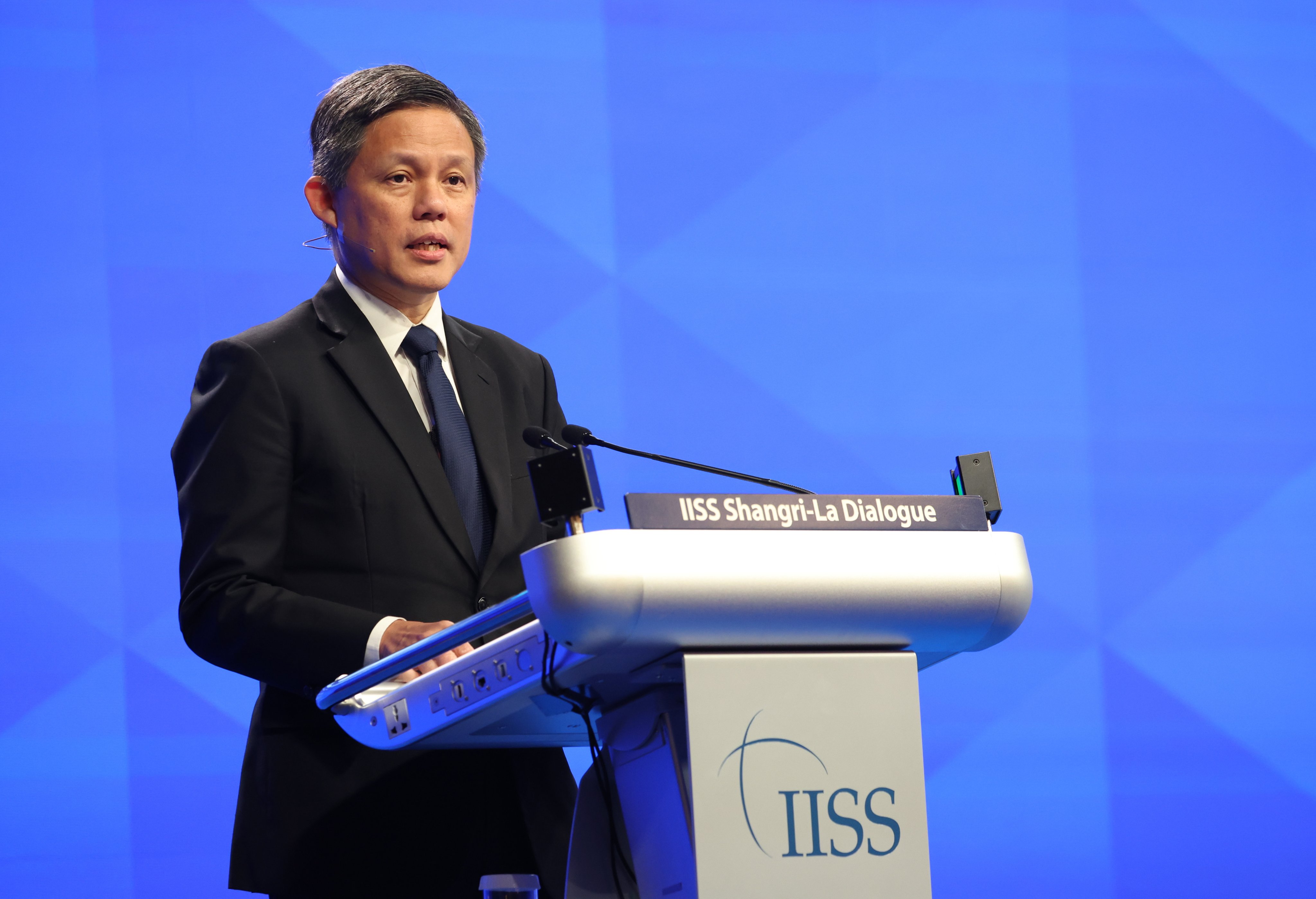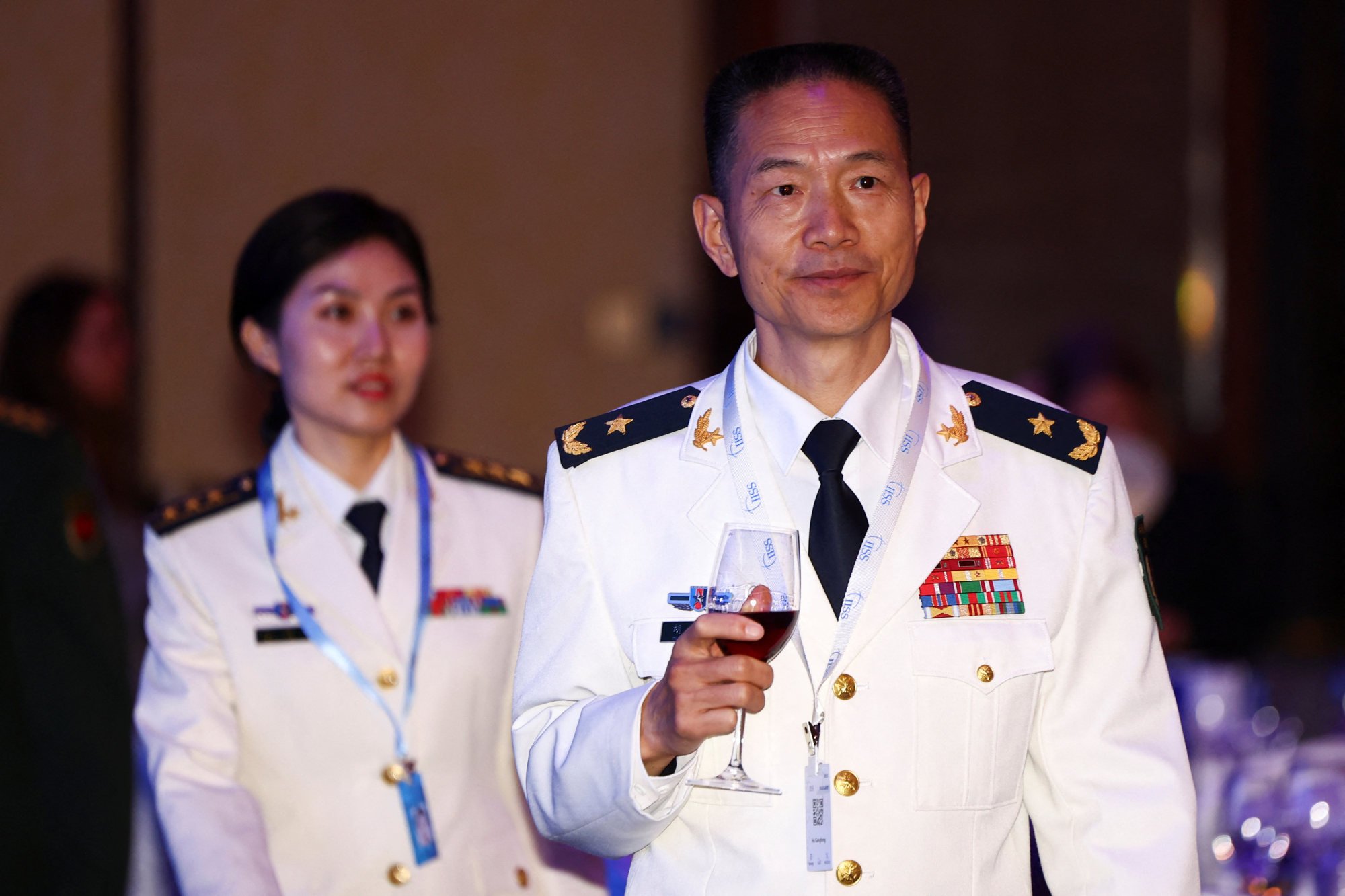Singapore tells nations to ‘build bridges’ with China to avoid misconception
Chan Chun Sing told the Shangri-La Dialogue that Beijing should also understand how the rest of the world ‘perceives’ the superpower

Singapore’s defence minister on Sunday said it was “incumbent” on other countries to reach out to China to avoid misinterpretation and misunderstanding as he urged Beijing to use every opportunity to make its perspective understood by the world.
“It is in the interest of all of us to work with China, and it is also in the interest of China to work with everyone else,” Chan Chun Sing told delegates at the Shangri-La Dialogue in Singapore.
“It is in the interest of all of us to better, deeper understand China’s fears, concerns and aspirations, just as it is important for China to understand how the rest of the world perceives China,” Chan said at the three-day premier Asian defence summit, which began on Friday.
“Regardless of whether China attends the Shangri-La Dialogue, it’s incumbent upon all of us also to reach out to China in different forums to try to build those bridges so that we not end up in a situation whereby either side misinterpret or miscommunicate or misrepresent each other’s positions.”
In a departure from its practice since 2019, Beijing sent a lower-level delegation to the conclave attended by ministers, defence chiefs and academics from 47 countries.
Chan, who is attending the event as defence minister for the first time after being sworn in on May 23, said on Saturday that the superpower’s presence was missed at a ministerial round table and stressed the importance of dialogue with China to prevent misunderstanding intentions.
His remarks came after Hu Gangfeng, vice-president of China’s National Defence University, on Saturday accused Washington of destabilising the region and causing division.
Hu was responding to US defence chief Pete Hegseth’s call for deterrence against what he described as Chinese aggression in the region.
Meanwhile, Chan underscored Singapore’s long-held principle of prioritising principles over picking sides amid intensifying great power rivalry, calling on countries to resist the trap of descending into the “law of the jungle”.
“If we have to choose sides, may we choose the side of principles – principles that uphold a global order where we do not descend into the law of the jungle, where the mighty do what they wish and the weak suffer what they must,” he said in his speech on Sunday at the final session of the dialogue.

He reiterated that the city state will promote a more integrated global economic and security order underpinned by international law.
During his wide-ranging address, Chan also warned against the dangers of turning a blind eye when a country invades another on the basis of rewriting history, pointing out that this was especially dangerous for young and small states such as Singapore.
“If one country, whether big or small, can march into another country on the basis that they will want to right the wrongs of history, then I think we live in a very dangerous world, and certainly for Singapore, because we have only been independent for the last 60 years,” he said.
Responding to a question on the concept of self-determination when it came to Taiwan, Chan warned against “simplistic” explanations of the conflict, dismissing attempts of comparing Ukraine with the island.
“It scares me to hear … attempts at simplistic explanations that this is a conflict between democracy and autocracy, or trying to draw unhelpful perils between Taiwan and Ukraine, I think it’s important for us to really understand the reasons behind how we got here,” he said.
“How this issue is going to be resolved, if not managed, will have to be determined by the Chinese people.”
Beijing sees Taiwan as part of China to be reunited by force if necessary. While many nations, including the US, do not officially acknowledge Taiwan as an independent state, they oppose any use of force to alter the existing status quo.
Chan noted that people on both sides of the Taiwan Strait shared similar end goals which included avoiding war and the opportunity to improve their sense of security and economic stability.
“We hope that both sides across the Taiwan Strait, both at a deeper level and at a political level, will be able to open up the channels of communications to discuss where their shared future lies and where their shared interest lies,” Chan said.
He will host a second ministerial round table on Sunday to close out the security summit.